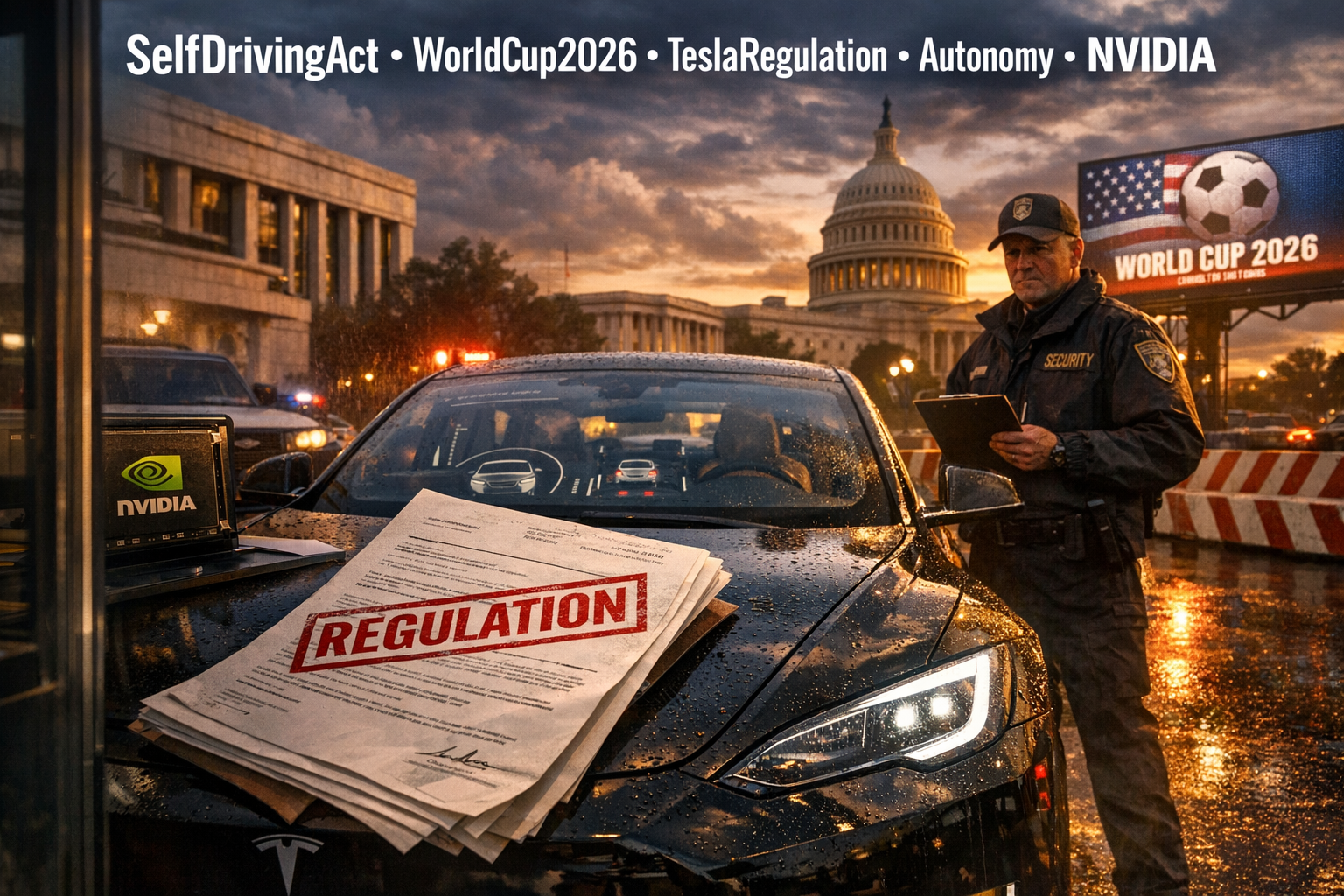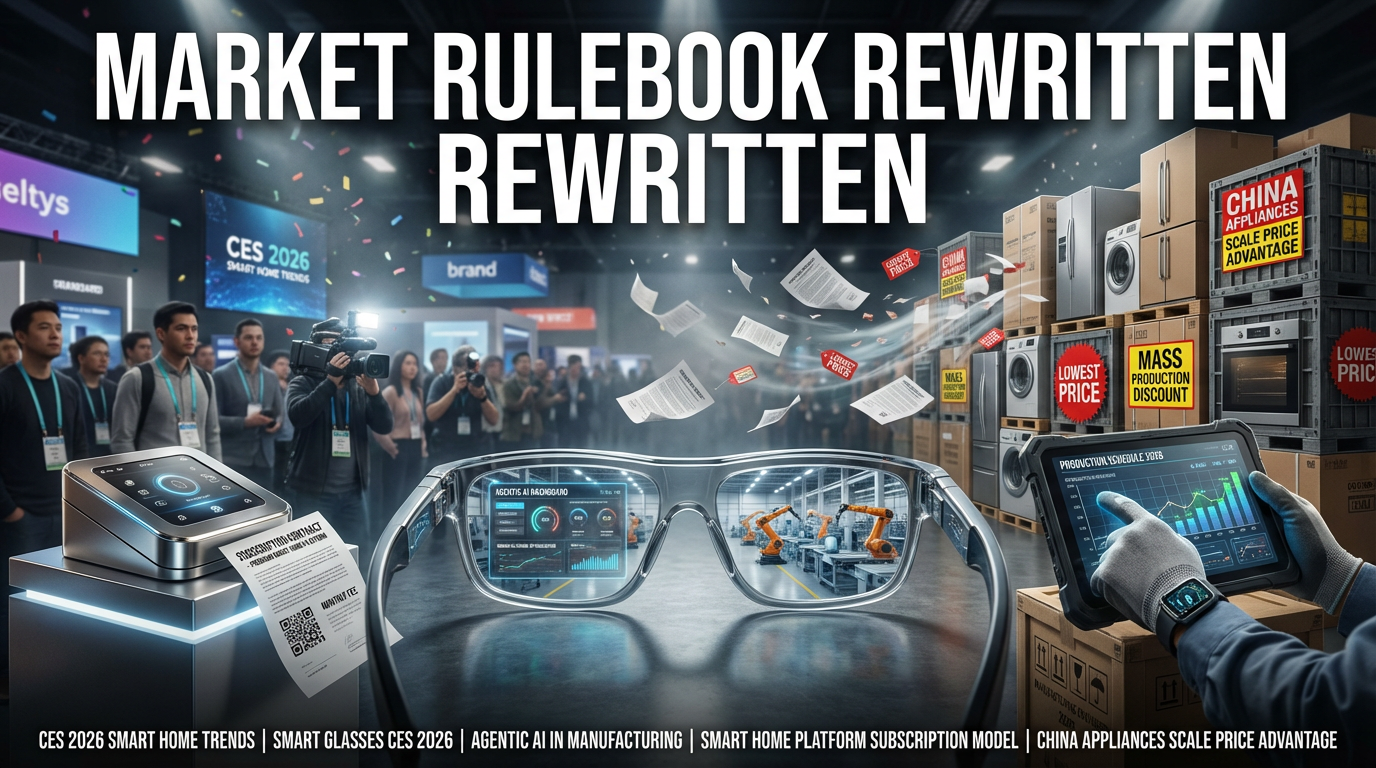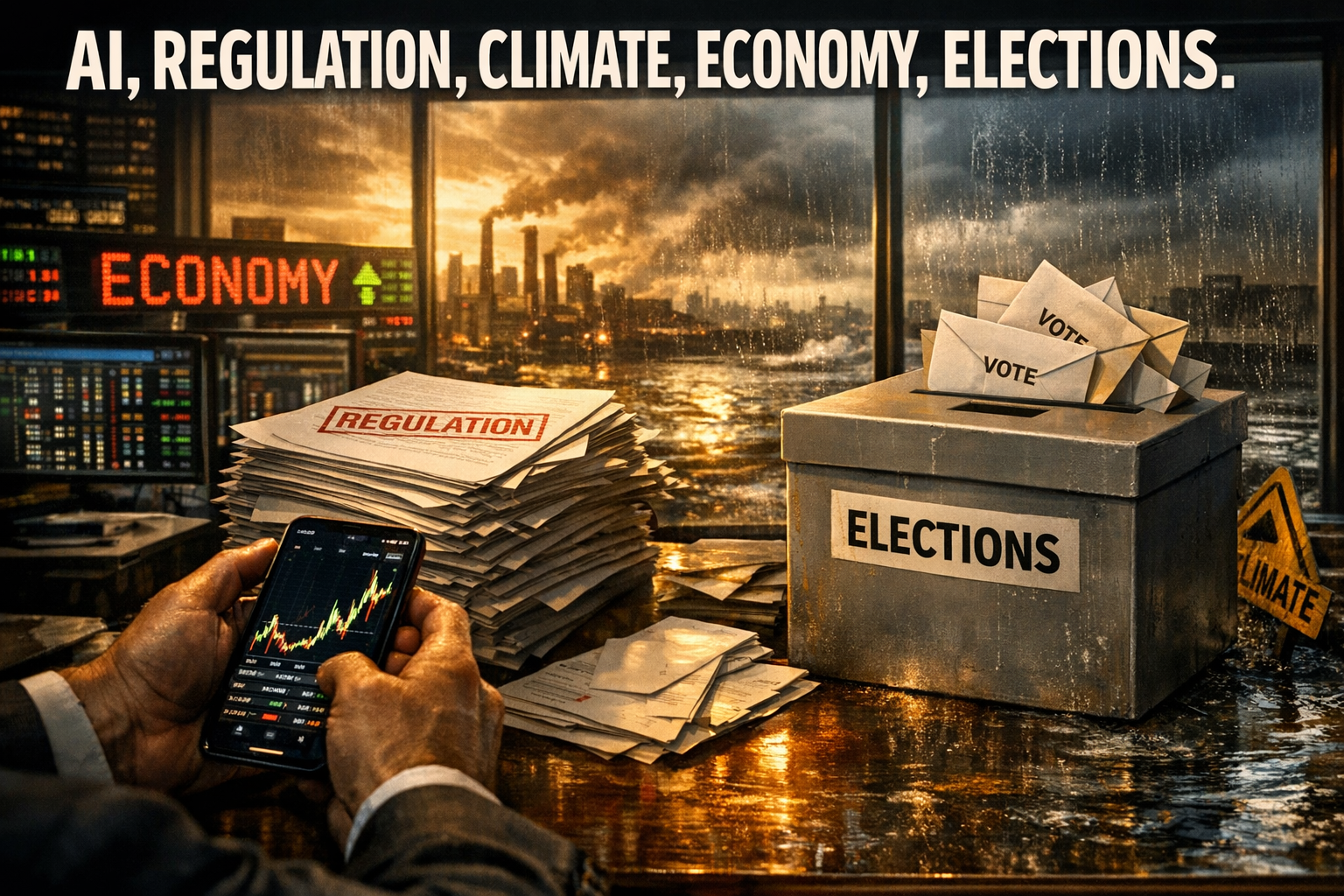Analysis of US Corporate Market Cap Changes in 2024 and 2025, and Investment Ideas
1. Key Characteristics of US Corporate Market Cap Changes in 2024-2025
-
Nvidia's Explosive Growth
- Surged from 5th in 2024 to 2nd in 2025.
- Overtook Microsoft, Alphabet (Google), and Amazon, establishing itself as a leader in AI and semiconductors.
- Proved its central role in the AI era through both stock price and market cap ranking changes.
-
Semiconductor Companies' Surge
- Broadcom and TSMC (Taiwan Semiconductor) aggressively moved into the top 10.
- Driven by rapid growth in semiconductor demand and advances in AI chip technology.
-
Realignment of Big Tech Companies
- Tesla's growth slowed, dropping to 7th place.
- Apple remained firmly in 1st place, demonstrating strong brand power.
- Microsoft fell to 3rd place, intensifying competition among big tech companies.
- Warren Buffett's Berkshire Hathaway
- Consistently remained in the top 10 but still found it challenging to enter the top 5.
- Distinguished for its defensiveness and stability.
2. Companies with Ranking Declines
-
Pharmaceutical and Healthcare Sector Underperformance
- Eli Lilly, Novo Nordisk (obesity drug manufacturer), and Pfizer experienced slowdowns.
- Concerns over spending and increased competition across the healthcare sector.
-
Traditional Consumer Goods and Defense Stocks
- Traditional consumer goods companies like Nike and McDonald's saw their rankings decline.
- Defense stocks (Lockheed Martin, Northrop Grumman) also weakened their market presence, overshadowed by new technology firms.
-
Traditional Financial Companies
- Large banks and insurance companies declined, though their rankings experienced relatively little change.
3. Emergence of New Powerhouses
-
Palantir
- Rapidly grew by combining AI and defense technology.
- Ranked outside the top lists in the 2020s but has now reached 59th place.
- Emerged as a leader in the new data-driven business beyond defense companies.
-
AI and Power Infrastructure
- AI-based power management and renewable energy companies like Eaton and NextEra are rapidly gaining prominence.
- Evaluated to have higher growth potential compared to traditional energy companies.
4. Trend Implications and Medium-to-Long-Term Investment Direction
-
Full-Scale AI Era
- Innovation eras are unfolding in the sequence of PC → Internet → AI.
- AI-centric companies like Nvidia and Palantir take top positions, leading the era's changes.
-
Conflict between Stable Defensive Stocks and High-Growth Stocks
- Defensive stocks like Berkshire Hathaway reduce volatility and ensure consistent returns.
- AI and technology-centric stocks have high growth potential but also significant risk.
-
Portfolio Strategy
- Long-term Perspective: Increase the proportion of AI technology stocks.
- Stability Perspective: Secure consistent returns through financial and defensive stocks.
- ETF Investment: Nasdaq ETFs or AI-related ETFs can be a good choice for investors who have difficulty accessing individual stocks.
Final Thoughts:
- This data is not just about market cap changes but an essential roadmap for understanding the flow of the times and investment directions.
- It is impossible to predict who will dominate the top rankings in five years, but it is important to continuously monitor current trends and respond flexibly to changes.
- Crafted by Billy Yang
[Related Articles at NextLens.Net]
Essential Conditions for US Stock Investing
AI-Related Investment Technology Analysis
*YouTube Source: [소수몽키]
– 순위변화에 답이 있다? 떠오르는 신흥강자 vs 저무는 전통강자

Okay, let's dive right in. This is quite a comprehensive breakdown, and I appreciate you structuring it for clarity. Here's the English translation of your analysis, keeping the original format:
1. Core of Trump's Strategy: Weaponizing Uncertainty
-
Trump intentionally creates uncertainty with his statements and policies to confuse opponents.
-
This can be seen as a Madman Theory tactic to gain a favorable position in negotiations.
Ex: Statements about the Panama Canal or annexing Greenland were intended to intimidate and extract more favorable terms. -
Ultimately, he aims to make the other party decide, "It's better to concede something and end the situation."
2. Why the Stock Market Fluctuates: The Fear Effect of Uncertainty
-
The stock market experiences unpredictable ups and downs due to Trump's words and actions.
-
Specifically, tariff-related remarks directly impact global companies, national economies, and investor sentiment.
Ex: Comments about tariffs with Canada led to a Canadian Prime Minister response and ultimately significant political shifts. -
Trump's actions may create short-term noise for investors but establish a favorable negotiating environment in the long run.
3. Impact on Steel and Manufacturing
-
Trump's steel quota and tariff policies during his time posed significant challenges for Korean companies (like Hyundai Steel).
→ However, Hyundai Steel's recent US factory establishment is a smart move to reduce tariff burden and directly access the US market. -
The question is whether this investment can recoup its costs in the short term.
→ If successful in the US market, it could substantially strengthen the position of Korean steel companies.
4. Economic Security and Diplomatic Uncertainty
-
Trump continues to make strong statements about strategic locations like Panama and Greenland, citing economic security concerns.
→ This goes beyond resource acquisition and seems more like a strategic maneuver aimed at global power competition. -
The trade tariff issues with Mexico and Canada are similar.
→ "America First" policies prioritize pressuring neighboring countries to extract more benefits.
5. Conflict Between Trump and the Fed (US Central Bank)
-
Trump strongly pushes for interest rate cuts to stimulate the economy.
→ However, this increases inflation risk and could negatively impact the economy in the long term. -
If the Fed doesn't respond, bond yields will rise, sending a negative signal to the market.
→ This rate policy represents a critical test of the Fed’s credibility.
6. Investment Strategy: "Defense or Offense?"
-
The stock market will likely continue experiencing short-term instability through 2025.
→ In these times, a "defensive investment" strategy might be advantageous. Rather than pursuing growth stocks, consider defensive, dividend-paying, or Trump-policy-beneficiary stocks. -
Even as funds flow out of big tech stocks, aggressively positioning yourself for "Trump-beneficiary stocks" could be a safe and lucrative opportunity.
7. Outlook and Mindset
- Investors should cautiously respond to variables from Trump's statements and policies, incorporating them into their portfolios.
- Instead of quickly abandoning the stock market, setting a long-term investment strategy is crucial.
- Crafted by Billy Yang
[Related Articles at NextLens.Net]
*YouTube Source: [Jun’s economy lab]
– 트럼프 호재가 악재로 돌변하고 있습니다(ft.금리)

[Korean Summary]
[소수몽키]
“순위변화에 답이 있다? 떠오르는 신흥강자 vs 저무는 전통강자“
1. 2024-2025년 미국 기업 시총 변화의 주요 특징
-
엔비디아의 폭발적 성장
- 2024년 5위에서 2025년 2위로 순위 급상승.
- 마이크로소프트, 알파벳(구글), 아마존 등을 밀어내며 AI와 반도체 분야의 강자로 자리매김.
- 주가뿐만 아니라 시총 순위 변화로 AI 시대의 중심임을 입증.
-
반도체 기업의 약진
- 브로드컴과 TSMC(대만 반도체)가 상위 10위 안으로 부담스럽게 치고 올라옴.
- 반도체 수요 급증과 AI 칩 기술 발전이 원인.
-
빅테크 기업의 재편
- 테슬라는 7위로 주춤하며 성장이 둔화.
- 애플은 여전히 부동의 1위로 강력한 브랜드 파워를 보여주고 있음.
- 마이크로소프트는 3위로 밀려났으며, 빅테크 내 경쟁이 더 치열해짐.
- 워렌 버핏의 버크셔 해서웨이
- 10위권 내를 꾸준히 유지하지만, 상위 5위권 진입은 여전히 어려움.
- 방어력과 안정성 면에선 독보적.
2. 순위 하락 기업
-
제약 및 헬스케어 부진
- 일라이 릴리, 노보 노디스크(비만약 제조), 화이자 등이 주춤.
- 헬스케어 분야 전반에서 지출 우려와 경쟁 심화.
-
전통적인 소비재 및 방산주
- 나이키, 맥도날드 등 전통 소비재 기업 순위 하락.
- 방산주(로키드마틴, 노스럽 그루먼) 또한 신기술 기업에 밀려 시장 존재감 약화.
-
전통 금융 기업
- 대형 은행 및 보험사가 하락세. 다만 순위가 상대적으로 적은 변동을 보임.
3. 신흥 강자의 등장
-
팔란티어
- AI와 방위산업 기술 결합으로 급성장.
- 2020년대만 해도 순위권 밖이었지만, 현재는 59위까지 진입.
- 방산 기업을 넘어 새로운 데이터 주도형 비즈니스의 강자로 부각.
-
AI와 전력 인프라
- 이튼과 넥스트에라 같은 AI 기반 전력 관리 및 신재생 에너지 기업들이 급부상.
- 전통 에너지 기업 대비 성장 가능성이 높게 평가됨.
4. 추세의미 및 중장기 투자 방향
-
AI 시대의 본격화
- PC → 인터넷 → AI의 순서로 혁신 시대가 이어짐.
- 엔비디아, 팔란티어 등 AI 중심 기업들이 상위권을 차지하며 시대 변화를 주도.
-
안정적 방어주와 고성장주 사이의 갈등
- 버크셔 해서웨이 같은 방어형 주식은 변동성을 줄이고 꾸준한 수익률 확보.
- AI-기술 중심주들이 고성장 하지만 그만큼 리스크도 큼.
-
포트폴리오 전략
- 장기적 관점: AI 기술주 비중 확대.
- 안정적 관점: 금융 및 방어형 주식으로 꾸준한 수익 확보.
- ETF 투자: 개별 종목 접근이 어려운 투자자들에게 나스닥 ETF 혹은 AI 관련 ETF가 좋은 선택이 될 수 있음.
마지막 생각:
- 이번 데이터는 단순한 시총 변화가 아니라, 시대의 흐름과 투자 방향을 읽는 중요한 손자병법 같은 맥락이라고 볼 수 있음.
- 앞으로 5년 뒤, 누가 상위권을 차지하고 있을지는 모를 수 있지만, 현재의 흐름을 꾸준히 모니터링하며 변화에 탄력적으로 대응하는 것이 중요함.
- Crafted by Billy Yang
[관련글 at NextLens.Net]
미국 주식 투자의 필수 조건
AI 관련 투자 기술 분석*유튜브 출처: [소수몽키]
- 순위변화에 답이 있다? 떠오르는 신흥강자 vs 저무는 전통강자

[전인구경제연구소]
“트럼프 호재가 악재로 돌변하고 있습니다(ft.금리)“
1. 트럼프 전략의 핵심: 불확실성을 무기로 삼다
-
트럼프는 자신의 발언과 정책으로 고의적으로 불확실성을 야기하며 상대방을 혼란스럽게 만듦.
-
이는 협상에서 유리한 위치를 선점하려는 미치광이 전략(Madman Theory)이라고 볼 수 있음.
예: 파나마 운하나 그린란드 합병 발언은 겁을 줘서 더 유리한 협상 결과를 끌어내려는 의도. -
결국, 상대방 입장에서 "차라리 일부를 양보해서라도 상황을 끝내는 게 낫겠다"는 판단을 하게 만듦.
2. 증시가 요동치는 이유: 불확실성의 공포 효과
-
트럼프의 발언과 행동으로 인해 주식시장은 하루 오르고 하루 떨어지며 예측 불가능한 상황을 겪고 있음.
-
특히 관세 관련 발언은 글로벌 기업, 국가 경제, 그리고 투자 심리에 직접적인 영향을 미침.
예: 캐나다 관세 발언으로 인해 캐나다 총리가 대응에 나섰고, 결국 큰 정치적 변화를 겪음. -
트럼프의 이런 행동은 단기적으로 투자자들을 시끄럽게 만들지만, 장기적으로는 자신에게 유리한 협상 환경을 조성.
3. 철강 및 제조업에 미치는 영향
-
트럼프 시절의 철강 쿼터제, 관세 정책은 한국 기업들(현대제철 등)에게 큰 도전을 안겼음.
→ 하지만 이번 현대제철의 미국 공장 설립은 관세 부담을 줄이고 미국 시장에 직접적으로 접근하려는 좋은 전략. -
문제는 이런 투자가 단기간에 비용 회수를 할 수 있느냐의 여부.
→ 미국 시장에서 성과를 낼 경우, 한국 철강 기업의 입지는 크게 강화될 수 있음.
4. 경제 안보와 외교적 불확실성
-
트럼프는 파나마·그린란드 등 전략 요충지에 대해 경제 안보를 이유로 강한 발언을 이어가고 있음.
→ 이는 단순히 자원 얻기 이상의 전략적 포석으로, 글로벌 패권 경쟁을 염두에 둔 움직임. -
멕시코와 캐나다에 대한 무역 관세 이야기도 마찬가지.
→ '아메리카 퍼스트'를 우선시하며 이웃 국가를 압박해 더 많은 이익을 얻으려는 계획.
5. 트럼프와 연준(미국 중앙은행) 간의 충돌
-
트럼프는 금리를 내리라고 강력히 압박하며 경기 부양을 도모하려 함.
→ 단, 이는 인플레이션 가능성을 키우며 장기적으로 경제에 부정적인 영향. -
연준이 이에 대응하지 않으면 채권 금리가 상승해 시장에 부정적 시그널이 전달.
→ 이번 금리 정책은 연준에 대한 신뢰도를 시험하는 중요한 기로.
6. 투자 전략: '방어냐, 공격이냐'
-
2025년까지 증시는 단기적 불안감이 계속될 가능성이 높음.
→ 이런 시기에는 "지키는 투자"가 유리한 전략일 수 있음. 단기적 성장이 확실한 종목보다는 경기 방어주, 배당주, 혹은 트럼프의 정책에서 수혜를 받을 수 있는 종목을 선택해야 함. -
빅테크 주식에서 자금이 빠져나가고 있는 상황에서도 '트럼프 수혜주'를 찾아 공격적인 포지셔닝을 설정하는 것이 안전하면서도 기회가 될 수 있음.
7. 전망과 마인드셋
- 투자자들은 트럼프의 발언과 정책에서 나오는 변수를 포트폴리오에 반영하며 신중히 대응.
- 성급히 주식시장을 떠나는 것보다는 장기적인 관점을 바탕으로 자신의 투자 방향을 설정하는 것이 중요.
- Crafted by Billy Yang
[관련글 at NextLens.Net]
- 트럼프 경제 정책의 영향
- 주식시장 전략: 불확실성 대응법
*유튜브 출처: [Jun’s economy lab]


